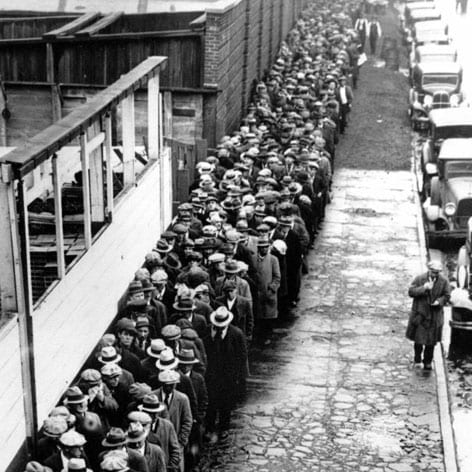Job loss and mental health
UCI’s David Dooley studies the impact of unemployment on mental health.

As the nationwide recession continues, California and 14 other states have unemployment rates hovering around 10 percent. Job loss can devastate workers, says David Dooley, UC Irvine professor of psychology & social behavior, and it can take a toll on their families and communities as well.
For more than 30 years, Dooley has studied the connection between economic stress and mental and behavioral disorders. He is particularly interested in the social costs of underemployment.
Here, Dooley discusses his research:
Q: How do job cuts affect not just individuals but entire communities?
A: If a company tries to do the same amount of work with fewer people, those who remain have to work harder or differently to pick up the slack. There also is an increase in fear and insecurity. If your unemployed neighbors lose their homes to foreclosure, you may begin to feel as if you’re living in a ghost town. This leads to a loss of community, neighborliness and friendship.
Q: What is underemployment, and how is it related to unemployment?
A: I define underemployment as economically inadequate employment – where your job is downgraded to part time or your pay is cut. A laid-off executive doing clerical work is underemployed. Someone making near or below poverty wages is underemployed. The psychological effects are similar to those of unemployment and usually include a decrease in self-esteem and an increase in depression and alcohol misuse. Our research has found that losing a job more than doubles the risk of increased alcohol consumption. Falling into underemployment can lead to a more than 70 percent increase in the risk of developing depression symptoms.
Q: Is any one group particularly vulnerable to unemployment or underemployment?
A: It’s pretty clear that youth unemployment is a big problem. Think of it as a seniority issue: Young people are usually the last to enter the workforce and the first to be booted out. Ethnic minorities also experience higher levels of unemployment, partly due to low levels of education and living in communities with fewer job opportunities.
Q: If unemployment causes such strong mental and physical health effects, why isn’t it tackled with the same force as other public health issues – swine flu, for example?
A: I think a main reason is that unemployment is not altogether bad from a market perspective. It’s seen as a natural way to reorganize jobs to be more economically efficient. In the short run, however, there are people who will lose their homes, fall into depression or abuse drugs. So there is certainly an inhumane quality to the argument for economic efficiency. But even if we wanted to eliminate unemployment – say, by having the government serve as the employer of last resort – I’m not sure we could afford it. The recent federal stimulus package has led to spending that exceeds revenue and a rising deficit.